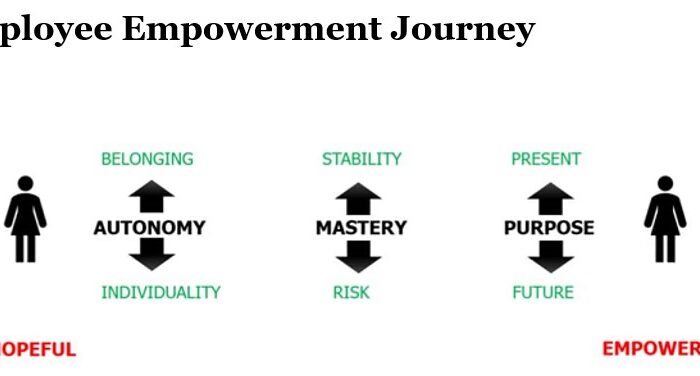Who’s Got the Monkey. In Blackboard Fridays Episode 115, Jacob talks about Productivity and Leadership. Need this implemented into your business? Talk to the international business advisor who can do exactly that – Contact Jacob, Learn More, or Subscribe for Updates.
If you lack time, and your team consistently fail to take responsibility, then this week’s episode based on the second most popular HBR article of all time is going to be the most valuable investment of time you make today.
The titular monkey represents each task that your business performs. Chances are, no matter how clear you start your week, by this time on Friday your back is crawling with monkeys – and most of them aren’t even yours!
In this week’s episode, learn:
- The 3 ways monkeys are imposed upon you – Boss, System, and Self, with Self-Imposed monkeys being the most insidious
- How to identify the monkey and say “No” BEFORE it makes the jump from your subordinate onto your back
- How to empower your team to better own their monkeys, releasing you to those tasks you actually WANT to be undertaking, and
- The 5 Levels of Initiative, and what you need to look for when recruiting or promoting
Watching Blackboard Fridays is a self-imposed, discretionary monkey. I also know from experience that when this monkey whispers in your ear each week, a whole lot of other monkeys make the decision to jump off your back, never to be seen again.
Enjoy this week’s episode here.
Who is Jacob Aldridge, Business Coach?
“The smart and quirky advisor who gets sh!t done in business.” Back independent since 2019.
Since April 2006, I’ve been an international business advisor providing bespoke solutions for privately-owned businesses with 12-96 employees.
At this stage you have proven your business model, but you’re struggling to turn aspirations into day-to-day reality. You are still responsible for all 28 areas of your business, but you don’t have the time or budget to hire 28 different experts.
You need 1 person you can trust who can show you how everything in your business is connected, and which areas to prioritise first.
That’s me.
Learn more here. Or Let’s chat.
Transcript
In 1974, the Harvard Business Review published an article that’s become their second most popular article of all time. It was called, Who’s Got the Monkey? And for most business owners and business leaders that I work with, the topic of who’s got the monkey and who’s in control of the monkeys that are running around in your organization is critical.
Now, by monkey, I’m talking about tasks. I’m talking about those small little capuchin monkey tasks that jump on your back unexpectedly and I’m talking about those big gorilla tasks that weigh you down and keep you up at night. If you think of every task in your business as being a monkey, then you can start to reflect on yesterday, maybe the past week or the past month how many monkeys you’ve taken on that you didn’t actually need or want to take responsibility for.
Let’s break down what the article taught us. There are three types of tasks, types of monkeys. There are the boss imposed tasks. Obviously, the 1970s, HBR was much more focused on large corporations than your SME. For small medium business owners, sometimes the boss is the client. So, the boss imposed tasks are those that you must do and where if you fail to do it, there will be a swift penalty.
Fail to deliver on that client outcome, they won’t pay your invoice, they’ll go to a competitor. Fail to do what your senior manager has asked you to do, they’ll becoming past your desk and cracking down on you fairly swiftly. There are system imposed tasks. These are also the ones that you must do there’s often less penalty.
For example, this might be a workflow process. A client that’s working through your business, there are tasks that somebody else ticks off, it comes to you and you need to tick them off. You must do them. The system, your peers rely on you’re doing that job in order to service the client, support your business.
Because they’re peers, the penalty is less likely to be as severe as if it’s a client or a boss directly. Those two are fairly clear. They’re things that we have to do. It’s the third type of task that is our biggest concern and our focus here. These are the self-imposed tasks, the monkeys that you choose to put on your back.
Now, we’d all love to think that these are discretionary and indeed they are entirely within your control. The ones that scare us are not so much, the discretionary tasks ,the initiatives that you have for you and your team, they’re the subordinate monkeys. They’re the monkeys that you pick up from those who report to you and they are self-imposed because you are choosing to do that to yourself.
Now, in a general sense, self-imposed tasks, you have full choice and there is no penalty. Nobody’s going to harangue you for not doing something that you were the only person you thought would do. It’s the subordinate monkeys that cause the biggest concern.
Maybe you’ve heard of Schmunday. Schumanday is that period at the end of a weekend where Sunday starts to blend into Monday and you start thinking about the week ahead. Schmunday in my experience is monkey feeding time. The tasks that are coming into your head at that point are almost certainly the self-imposed subordinate monkeys that you’ve picked up that you didn’t need to.
So, what do you do, how do you act differently as a business leader to keep the monkeys where they belong on the team that are working for you? I recommend episode 71 of Blackboard Fridays where we talked about different communication types. This is quite useful because you need to realize that monkey passing is an invitation. When somebody comes up to you and says, “Hey, I’m having a problem with this client”, if you, that is an invitation for you to take that monkey and to take that problem in that task, take that responsibility on.
Even if you just say, “Let me think about it”, you’re accepting the invitation. You are now responsible for feeding that monkey because if you say you’re going to think about it that other team member isn’t. And they’ll probably pop their head in late on a Friday when they’re heading off for drinks and go, “Hey, if you thought any more about that?” They’ve passed the monkey to you, you have got the monkey.
When those invitations come, the first thing you need to do is turn it back as a question and ask that individual what outcome are you looking for, what are you trying to achieve? That’s where the different types of communication can come in handy. Maybe they just want to rent. They just want to tell you that this client’s pissing him off at the moment, get it off their chest and then they’ll go back to doing a great job. Maybe they need a decision. Maybe they just need to discuss it with you.
Often, you will take a monkey and create more work for the whole business. It’s not just taking it off the subordinate, it’s actually creating more work for the whole business as well as for yourself. Now, you may not have time at the moment that that invitation comes in to make a decision to have the discussion to deal with the monkey.
What you need to do is ask that team member to schedule a time with you to have a discussion. Clear things around that. Asking them to schedule keeps the monkey on them. If you take responsibility for scheduling, you’ve got the monkey. You need to have a discussion face to face, phone call, whatever it might be.
Do not put this on email. Email didn’t exist in 1974 when HBR wrote about getting the monkey, but it is the number one reason why you have so many more monkeys today than you had in the past because every email that comes in is somebody taking a monkey off their back and flinging it directly into your inbox.
So, work on keeping the responsibility, keeping the monkey with those team members. Ideally, the root cause is building a team that shows more initiative, that takes responsibility for their monkeys and so flings fewer of them at you and invites you to take them on.
The same HBR article talked about the five different types of initiative. Those team members that wait until they’re told what to do. We don’t want to be recruiting those. Those that ask what to do. Well, it’s a step up, but at the same time, you’re a small medium-sized business, you don’t have the time to have team members that can’t take any initiative, that ask what to do, but still need to be told.
The third type, this is where maybe you’re starting and if you’ve got junior team members, this is perhaps where they’re coming in. They’ll recommend, but they still seek permission before they act. Whatever monkeys they’ve got, whatever tasks they’re responsible for, they still want to talk about all of them with you. It’s a starting point. You don’t want to keep people who are at a level three in that level for very long. If they won’t move up, ship them out.
Four is bit better. You can now start to manage your business and not take on as many monkeys if you’ve got level for employees and team around you. These are people who act, who make a decision, who get something done and then advise you immediately.
Again, they’re not relying on you, they’re no dependent on you to get things done. They’re still, though, using up some of your valuable time with that constant advice about here’s what I did and sometimes, they’re actually doing that because they want permission.
The team you want to build, you want to recruit or you want to train, you want to demonstrate the initiative. Are these level five? These are the people that act on their own. When a monkey comes to them through whatever means, they take responsibility for dealing with that monkey and not passing it on to somebody else. And they report to you on a routine regular basis. They’re still communicating, they’re not a silo, they’re not hiding what they’re doing. They’re communicating it, though, in an efficient manner.
Again, recommend another Blackboard Fridays episode 27 where we talk about the momentum meeting schedule. This is how you create these routine regular conversations where people can discuss the monkeys that have been dealt with in a fast and efficient manner.
Speed and efficiency of monkey management is how you make sure you have enough time to create the ideal; the discretionary self-imposed tasks, those monkeys in your week, that you actually want to play with.
Next Steps
Want to learn more about how this can apply to your business? It costs nothing to chat:
- Email me jacob@jacobaldridge.com (I read them all)
- Call, Text, or WhatsApp me +61 427 151 181
- Or just Subscribe https://jacobaldridge.com/about/subscribe-to-jacob-aldridge-com/ to stay in touch




